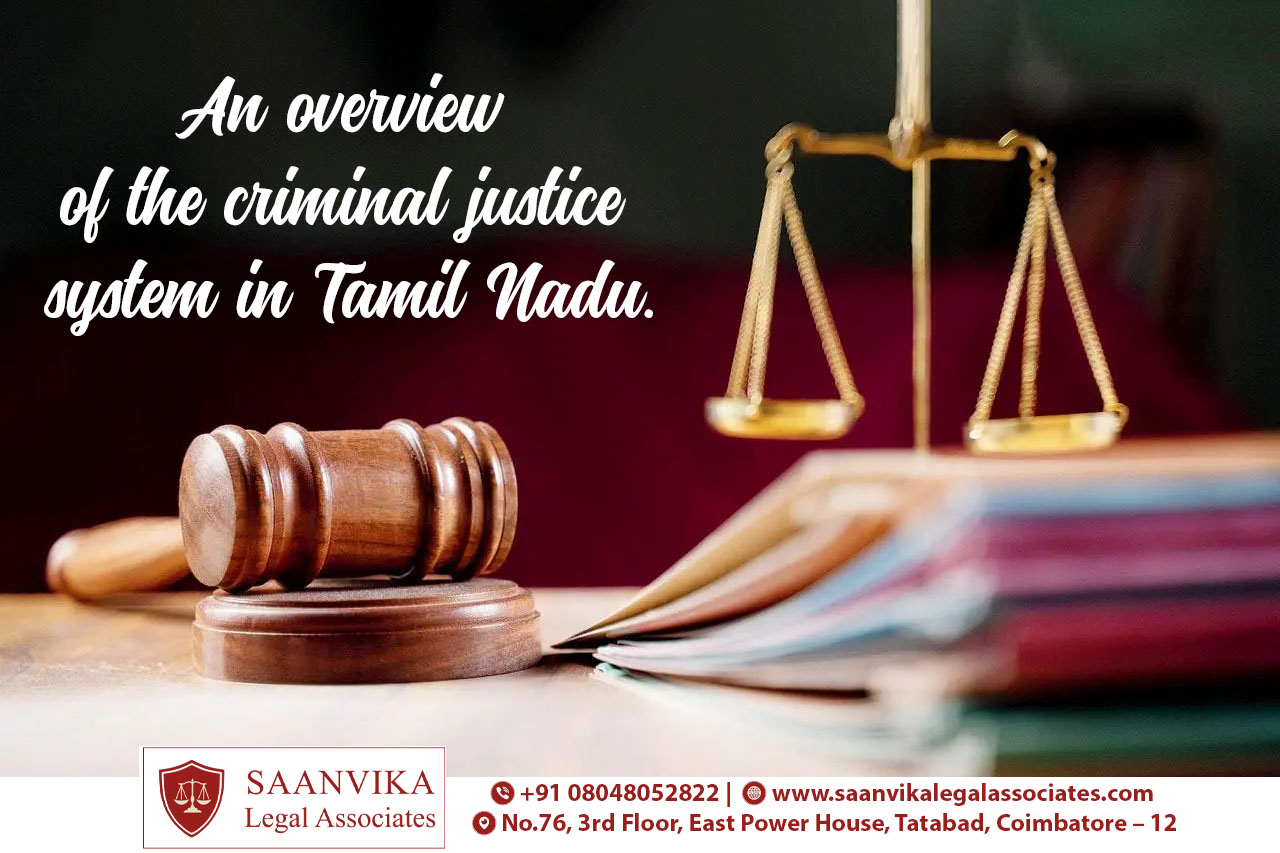
Criminal Justice/ Criminal justice system/ Crim...

Criminal Justice/ Criminal justice system/ Criminal justice system in Tamilnadu/ Best law firm in Coimbatore/ Best advocates in Coimbatore/Best law service in Coimbatore/ Best legal consultation in Coimbatore/ Best legal services in Coimbatore/ Best lawyers in Coimbatore/ Online legal consultation. The criminal justice system in Tamil Nadu, like the rest of India, is based on a framework established by the Indian Constitution and the various criminal laws enacted by the central and state governments. Here's an overview of the criminal justice system in Tamil Nadu: Tamil Nadu Police: The Tamil Nadu Police is the primary law enforcement agency responsible for maintaining law and order in the state. It is headed by the Director-General of Police (DGP). City Police and District Police: Law enforcement is divided into city police (urban areas) and district police (rural areas). Each district and major city has its own police commissionerate or police department. Investigation and Crime Detection: Police officers conduct investigations into criminal cases, gather evidence, and arrest suspects. The Criminal Investigation Department (CID) handles specialized and complex cases. Indian Penal Code (IPC): IPC is the primary criminal code of India. Offenses, penalties, and procedures for prosecution are defined under IPC. Special and Local Laws: Apart from IPC, various special and local laws, such as the Tamil Nadu Prohibition Act, Motor Vehicles Act, and others, are enforced by law enforcement agencies. First Information Report (FIR): Criminal cases begin with the filing of an FIR, which is a formal complaint lodged with the police by the victim or a witness. Arrest: If the police have evidence or reasonable suspicion, they can arrest the accused. The arrested person must be produced before a magistrate within 24 hours. Remand: The magistrate may grant police custody (remand) for further investigation or send the accused to judicial custody based on the nature of the crime. Bail: Accused individuals can apply for bail, allowing their release until the trial. The decision depends on the severity of the crime and other factors. District Courts: District courts are the trial courts for criminal cases. Cases are heard by judges, and the prosecution presents evidence against the accused. High Court of Madras: Appeals from district courts go to the Madras High Court, which has appellate jurisdiction over lower courts in Tamil Nadu. Supreme Court: In exceptional cases, appeals can be made to the Supreme Court of India, the highest judicial authority in the country. Convicted individuals serve their sentences in prisons managed by the Tamil Nadu Prison Department. Various rehabilitation programs are implemented to reintegrate ex-convicts into society, including skill development and counseling. The Tamil Nadu State Legal Services Authority provides legal aid services to the economically weaker sections and marginalized communities, ensuring access to legal representation. Efforts are made to modernize law enforcement through the use of technology, training programs, and reforms to improve efficiency and accountability. You can get the law services of Saanvika Legal Associates like Trust deeds, Financial law, Insurance law, Environment, Consumer, Property, Banking Tax Cyber, Constitutions, Labor law, Civil, Criminal, Family, Property registration, Getting Doc, and many others. Additionally, you can get to know about Legal notice, documentation, Legal registration, Property organization, establishing companies, Family legal consultation, Civil legal consultant, Criminal legal consultant, and Litigation for finance property from our expert lawyers.
Keywords
Subscribe for latest offers & updates
We hate spam too.


